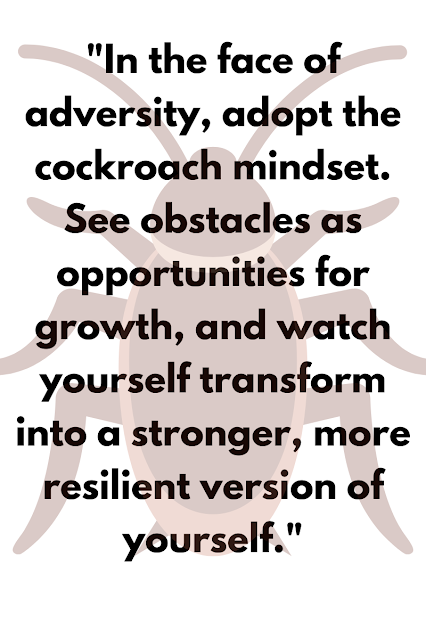Introduction Most people don’t fail because they lack ambition. They fail because they never pause to question direction. The Ladder Theory reveals a quiet but powerful truth about modern life: we spend years climbing—working harder, moving faster, chasing milestones—without ever asking if the ladder is leaning against the right wall. In a world that celebrates hustle, speed is praised. Progress is measured by promotions, income, recognition, and visibility. But very few conversations focus on whether that progress actually leads to a life that feels meaningful. This theory invites a pause. Not to slow ambition, but to realign it. The Story Behind the Ladder A man once carried a ladder. He was ambitious. Hungry to “reach the top.” All he needed was a wall to climb. He found one. Tall. Impressive. Everyone else was climbing it too. That alone felt reassuring. Without reflection, he assumed: “This must be the right one.” No pause. No questions. No alignment check. He pla...
Introduction
We frequently seek comfort and avoid situations that make us uncomfortable in our pursuit of personal growth and self-development. True change, on the other hand, comes from embracing discomfort and confronting our fears head-on. The Cockroach Theory, based on a simple comparison, teaches us important lessons about tenacity, adaptability, and the value of stepping outside of our comfort zones. In this blog, we will look at the Cockroach Theory and see how it may be applied to our life to help us grow as people.Understanding the Cockroach Theory
The Cockroach Theory is a metaphor that implies that troubles and unpleasant events are akin to cockroaches. It emphasizes how, like a concealed infestation, avoiding or ignoring these difficulties helps them to endure and grow. However, tackling these issues head-on reduces their power over us, and we can effectively handle and conquer them.The Cockroach Theory, at its foundation, advocates embracing discomfort as a motivator for human growth. It inspires people to move beyond their comfort zones and face difficult situations with courage and resilience. This allows one to learn new talents, gain experience, and broaden their personal capabilities.
Benefits of Cockroach Theory for Self Development
1. Embracing Discomfort:When confronted with challenges or uncomfortable situations, our impulse may be to flee or avoid them. The Cockroach Theory, on the other hand, teaches us the value of embracing discomfort. We can develop resilience and overcome impediments to our personal progress by admitting and confronting our anxieties. Pain allows us to learn, adapt, and become better versions of ourselves.
2. Taking a Risk:
Our comfort zones are secure and familiar but may also be restricting. The Cockroach Theory challenges us to leave our comfort zones and venture into unexplored territory. We expose ourselves to new experiences, ideas, and viewpoints in this way, which might lead to personal growth. We find our full potential and open up new possibilities when uncomfortable with the unknown.
3. Learning from failures:
Failure is unavoidable, and the Cockroach Theory reminds us that it is not something to dread or avoid. On the other hand, failure should be viewed as an excellent learning opportunity. When we face setbacks or make mistakes, we can view them as stepping stones towards growth. We can progress and reach our goals by analysing our failures, grasping the lessons they teach us, and making the required modifications.
4. Building Resilience:
The Cockroach Theory emphasises the necessity of resilience as a vital quality for personal development. Stability enables us to recover, adapt, and continue when confronted with difficulties, setbacks, or unpleasant conditions. We cultivate the ability to navigate life's ups and downs with grace and drive by cultivating resilience. Overcoming adversity allows us to develop character and emerge stronger than before.
5. Embracing Change:
Change is an unavoidable element of life, and the Cockroach Theory encourages us to accept change rather than reject it. We open ourselves to new opportunities and progress by taking and adapting to change. Change can be uncomfortable and disruptive, but it also provides opportunities to reinvent ourselves, develop new skills, and explore new avenues. Accepting change allows us to grow and broaden our horizons.
Our comfort zones are secure and familiar but may also be restricting. The Cockroach Theory challenges us to leave our comfort zones and venture into unexplored territory. We expose ourselves to new experiences, ideas, and viewpoints in this way, which might lead to personal growth. We find our full potential and open up new possibilities when uncomfortable with the unknown.
3. Learning from failures:
Failure is unavoidable, and the Cockroach Theory reminds us that it is not something to dread or avoid. On the other hand, failure should be viewed as an excellent learning opportunity. When we face setbacks or make mistakes, we can view them as stepping stones towards growth. We can progress and reach our goals by analysing our failures, grasping the lessons they teach us, and making the required modifications.
4. Building Resilience:
The Cockroach Theory emphasises the necessity of resilience as a vital quality for personal development. Stability enables us to recover, adapt, and continue when confronted with difficulties, setbacks, or unpleasant conditions. We cultivate the ability to navigate life's ups and downs with grace and drive by cultivating resilience. Overcoming adversity allows us to develop character and emerge stronger than before.
5. Embracing Change:
Change is an unavoidable element of life, and the Cockroach Theory encourages us to accept change rather than reject it. We open ourselves to new opportunities and progress by taking and adapting to change. Change can be uncomfortable and disruptive, but it also provides opportunities to reinvent ourselves, develop new skills, and explore new avenues. Accepting change allows us to grow and broaden our horizons.


Comments
Post a Comment
Please do not add any spam link in the comment box